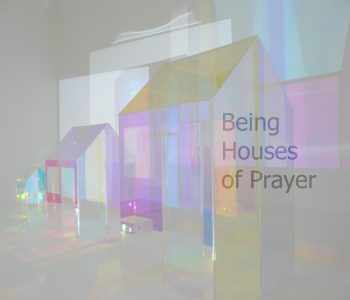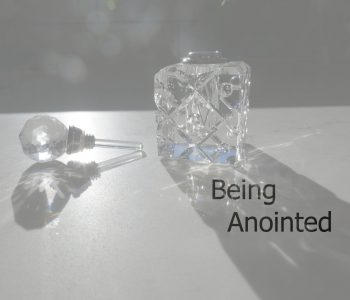 Being...
Being...
Being Entitled
Millennials are often accused of being entitled and privileged – of taking for granted things that others have to work hard for, believing they deserve the very best. Many of us are like that however, not just young people! We live in an age of entitlement. Some think they are entitled to say whatever they think, whatever they feel, and whatever they believe; regardless of how their words may hurt others or damage their community and society. This is not “freedom of speech”, this is entitlement. And it reeks of selfishness and pride.
We are naturally self-absorbed and the centre of our own universe; even helping others can be self-fulfilling and self-serving. Christians in particular often speak and act like they are entitled. Many clearly believe they are entitled to a title by calling themselves “Christians” in the first place! The word no longer means “Christ’s ones” in our society, instead the title is often associated with prejudice, arrogance, and bigotry in people who are religious church-goers. As T. Austin-Sparks put it in 1956: “It is a terrible thing to say, but it is true, that right there, with the Christian title, there is that which is after all only the kingdom of the soul of man, the natural life.” (“The Controversy of Zion”).
When that is the case, it is the very definition of taking God’s name in vain. I used to think that taking God’s name in vain meant not swearing using God’s name. However, I now see that many take His name in vain by using God’s name for things that He would never, ever endorse! It is putting His name as a title on things that are ungodly and unholy. Using His name in this way does not sanctify, it desecrates and blasphemes.
“To ‘take the Name of the Lord in vain’ is to use it out of harmony with His character. God has a reputation and He cannot allow that reputation to be injured. He called a people out of the nations for His Name, which meant showing forth what God is like. When that people, in character and conduct, violated the principle of the Name, He flung them from Him and no more called them ‘My people’.” (TAS – The Greatness and Glory of God’s Name).
Or, as Jesus put it, “Many will say to me, ‘Lord, Lord! Didn’t we prophesy in your name? Didn’t we cast out demons in your name? Didn’t we perform many miracles in your name?’ Then I will tell them to their faces, ‘I never knew you! Get away from me, you workers of lawlessness!’” Paul warned that this, “mystery of lawlessness (that hidden principle of rebellion against constituted authority) is already at work in the world” (2 Thess. 2:7 AMP). In this age of entitlement we are certainly seeing this at work, with some believing they are not subject to governments, and not subject to laws. It is nothing new, but it is also something to be repudiated and called out as evil, ungodly and unholy.
It requires a deep work of the Cross in our hearts to change us from being entitled to unentitled, from complaining to thanksgiving, no matter what our circumstances are.
The Titled
In churchianity there is a hierarchy of titles: missionary, reverend, pastor, prophet, apostle, evangelist, teacher, elder, intercessor, priest, pope, bishop, worship leader, etc. etc. and not in that order! The titles just go on and on until we come to the lowest of them all: sister and brother. And yet being a brother or sister is truly the highest of all because it is brought about by God and not man, through the miracle of birth into our Father’s family.
The terms “sister” and “brother” are not titles, they are relationships through birth into a family. It has to be acknowledged that using brother or sister as a title such as, “Brother John” or “Sister Jane”, is simply NOT normal. 🙂 It is an unnatural, religious thing to do. There is something wrong in your family if you feel you have to refer to your brothers or sisters with a title, or if you feel you need to use it for yourself.
When people use the term “brother” or “sister” in the real world (as opposed to in an artificial religious world) it is because they are referring to their relationship and function in a family; it is not used as a title. And it does not mean anyone is above or below their fellow siblings. You are simply born into the place of being a sister or a brother. It is not something you can put on from the outside just by using the word as a title. It is not something that is brought into existence simply by using the word. In fact, it is not something that had anything to do with you at all; it was brought about by your parents. And it is the same in the heavenlies (see James 1:18; John 15:16; 2 Thess. 2:13).
When you are someone’s brother or sister, you don’t keep on reminding them or yourself of the fact by using the word as a title – you just know it is part of who you are. It is a relationship you were born into – whether physically or spiritually. You know when you are someone’s brother or sister and you act upon that relationship without having to preface their name with “brother” or “sister”.
I am a sister. I have an older brother, but I have never once called him, “Brother Evan”. It would just be weird for me to do that! Only in the religious world do you find people calling each other Sister That and Brother This. While I appreciate the sentiment and truth behind the use of the words, simply calling someone Sister or Brother does not make it so. Instead, using the word as if it were a title, especially with someone you don’t even have a close relationship with as your sister or brother, can come across as very artificial, false, and unnatural.
Spiritually speaking, we have been born from Above, we have one Father whom we know intimately. And just like in any family here on earth, we are closer to some of our brothers and sisters than others – there is always that close bond there – we have grown up together. We know and love each other in ways that only siblings can. This relationship as spiritual siblings is something very precious and heavenly, but I don’t know all my siblings in this family. I only know those few whom Father has brought me into relationship with.
So where did using “brother” and “sister” as religious titles originate? In the Roman Catholic church hundreds of years ago where the terms were used for nuns and monks, along with the titles “reverend father”, “mother superior” and many more. They were, and still are, religious titles, along with the word “brethren” – an archaic word that is used almost exclusively in religion, and is not used in common every day English.
I don’t think it is necessary to expand on the fact that “teacher”, “pastor”, “messenger” (apostle), “elder” and “prophet”, were not official titles in the Scriptures, let alone brother and sister! They are all functions – simply who someone is without ever needing a title to enforce or explain who they are. Jesus said, “None of you should be called a teacher. You have only one Teacher, and all of you are brothers and sisters. Don’t call anyone on earth your father. All of you have the same Father in heaven. None of you should be called the leader. The Messiah is your only Leader” (Matt. 23:8-10). He said those words to those who liked to be honoured with titles. And humans have not changed; many still use titles to honour themselves and others with. This is clear as day in religion where people are commonly called Pastor So-and-So, Prophet So-and-So, and Elder So-and-So.
We know that we are brothers and sisters; that is not up for debate, because it is a fact. When we have been birthed to the same Father, then obviously we are brothers and sisters. But this is a truth we know deep inside; we do not take on titles to remind ourselves of it, it is simply who we are in experience.
Whether we are a sister or a brother is also not a dividing, separating thing, but a uniting thing: we have ONE Father. In fact the Scriptures tell us there is no differentiation between sisters and brothers at all! It doesn’t matter what gender you are, in Christ there is neither male nor female; not there is both, but neither: “There is neither male nor female; for you are all one in Christ Jesus” (Gal. 3:28).
What Are We Entitled To?
“If we are His children, then we are His heirs also: heirs of God and fellow heirs with Christ sharing His inheritance with Him” (Rom. 8:17a). So, as His heirs, what are we entitled to? Are we entitled to say or do whatever we want to, whenever we want to? Jesus said that He did and said nothing unless His Father told Him to (John 5:19,30), “I do nothing on My own but say only what the Father taught Me” (John 8:28). Taking Jesus as our example then, the answer is a resounding: No.
The Bible does tell us what we are entitled to as the daughters and sons of God. Here are some of the things we are told we are entitled to:
- Share His sufferings (Rom. 8:17b).
- Put ourselves last and put others first (Mark 9:35).
- Deny ourselves what we want, lose sight of ourselves and our own interests (Luke 9:23).
- Take our share of hardships and suffering like a soldier (2 Tim. 2:3).
- Be diminished, made less of in authority and popularity (John 3:30).
- Bear suffering patiently (1 Pet. 2:20).
- Have tribulation, trials, distress, and frustration (John 16:33).
- Not insist on our rights and privileges (1 Cor. 9:18).
- Lay down our lives for others (1 John 3:16).
- Be servants, serving everyone (1 Cor. 9:19).
- Be outside of the norm where most people are, accepting reproach and misunderstanding (Heb. 13:13).
- Be dead to the world (Gal. 6:14).
- Be chastened (Heb. 12:7).
- Be insulted and hated (Matt. 10:22).
Jesus summed it up this way: “Students are not better than their teacher. Servants are not better than their master. Students should be happy to be treated the same as their Teacher. And servants should be happy to be treated the same as their Master. If those people call Me ‘the ruler of demons,’ and I am the head of the family, then it is even more certain that they will insult you, the members of the family!” (Matt. 10:24,25). That is pretty clear! And please note the context of who it was that insulted Jesus; it was not “the world”, it was the pastors of the day: the religious leaders (Matt. 9:34).
But the ultimate, amazing, all-inclusive inheritance that we are entitled to as God’s children is His Son: CHRIST. In Him and because of Him we inherit ALL that He has and is: absolute glory! Here are just a few of the things we inherit through Him:
- Access to God as our Father (Eph. 2:18).
- Membership in His Household (Heb. 6:3).
- Friendship (John 15:15).
- Family (Heb. 2:11).
- Courage and confidence (John 16:33).
- A Kingdom (Heb. 12:28).
- A new life and inheritance (1 Pet. 1:4).
- Victory (Rom. 8:37).
- Strength (Eph. 6:10).
- Overflowing Life (John 10:10).
- Peace and rest (John 14:27).
- Grace and truth (John 1:14).
- Endurance and patience (Col. 1:11).
- Power and authority (Matt. 10:1).
- Holiness (Eph. 4:24).
- Glory, honour, and unity (John 17:22,23).
- Forgiveness (Col. 1:14).
- Joy (John 15:11).
- Liberty (Gal. 5:1).
- Living in love (John 15:9,10).
- Wisdom and revelation (Eph. 1:17)
- Everything (Col. 3:11).
And that is not even close to being a comprehensive list! Perhaps a better question and consideration though, than asking what we are entitled to, is:
What is God Entitled To?
As His children who love Him, that is a far more important question.
Simply and yet all-inclusively, He is entitled to children – us (Gal. 4:4-7) His creation. Our Father’s inheritance in Christ is us, and is Christ in us: seeing His own Life, character, values, and likeness in His children! We are His heritage (Eph. 1:10,11), bringing Him joy and glory. Seeing this is to know, “what are the riches of the glory of His inheritance in the saints” (Eph. 1:18). His inheritance – it is all for Him, we are for Him! That is glory – “having the eyes of your heart flooded with light, so that you can know and understand the hope to which He has called you, and how rich is His glorious inheritance in His holy people”.
Hebrews 1:10 tells us that God is the one for whom and through whom everything exists. And logically, children only inherit what their Father has and is; it all passes through to the children. The children of any father bear his name and bloodline, they represent their father and their father’s name, as do we. We cannot just do and say whatever we feel like, unless, of course, we are lord of our own lives and God is not.
We are not too familiar with the concept of lordship these days. Most of us don’t have kings, lords and governors ruling over us. What we do have are employers, managers, governments, presidents, directors, CEO’s and bosses – that is language we understand. And we know that we are subject to them and their rules, we do what they ask us to do as good law-abiding citizens (Rom. 13:1-5).
One part of society that has understood authority for centuries, right up until today, is the military. Matthew wrote about the army officer who asked Jesus to heal his servant. The officer said, “Lord, I am not good enough for You to come into my house. You need only to give the order, and my servant will be healed. I know this, because I understand authority. There are people who have authority over me, and I have soldiers under my authority. I tell one soldier, ‘Go,’ and he goes. I tell another soldier, ‘Come,’ and he comes. I say to my servant, ‘Do this,’ and my servant obeys me.”
And Jesus said in response, “The truth is, this man has more faith than anyone I have found, even in Israel. Many people will come from the east and from the west. These people will sit and eat with Abraham, Isaac, and Jacob in God’s kingdom. But the sons and heirs of the kingdom will be thrown out.” (Matt. 8:5-13).
There is something inherent in us that does not like humility, that does not like to relinquish control, that does not like to be told what to do, but desires to be titled and superior. But this man knew and submitted to authority in his work, and this knowledge translated into faith because he knew what it was to be subject to those who gave him orders. How much more are we subject to our heavenly Father and His ownership and government of our lives!
Knowing God as our Lord, knowing Him as our King, knowing Him as our Father means that we do not live for ourselves; everything is for Him. HE is the one who is entitled to receive our acquiescence, submission, and adoration.
When our Father is recognised as the Manager of our lives, when we accept His government, when we exhibit His character traits and look like Him, then He is receiving His inheritance in and through us. Then He is seen! Then He is honoured! Then He is celebrated! Then He receives all the glory, adulation, credit and honour that He is fully entitled to!
“In bringing many sons and daughters to glory, it was entirely appropriate that God—for whom and through whom all things exist—should make the Pioneer of their salvation perfect through sufferings. For the One who sanctifies and those who are sanctified all have one Father. That is why Jesus is not ashamed to call them brothers and sisters” (Heb. 2:10,11).



















